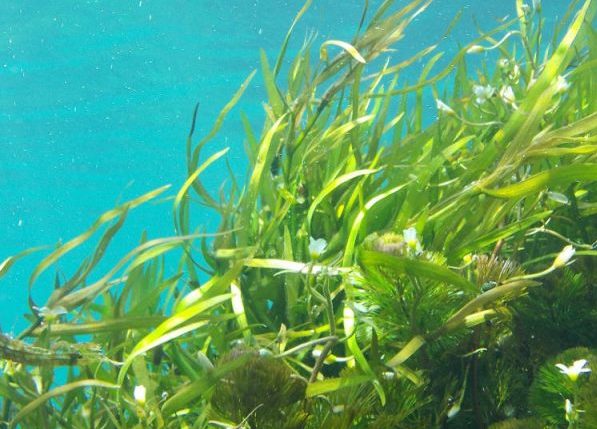
The Loch Craignish based charity, Seawilding, is thrilled to be partnering with Project Seagrass and the Scottish Association of Marine Science (SAMS) to deliver Scotland’s first community-led seagrass restoration project at Loch Craignish, Argyll.
Seagrass (Zostera marina) is a vital inshore marine habitat, which sequesters carbon faster than a rainforest and turns bare sand habitat into a structurally complex, productive ecosystem full or marine life. It’s also a key nursery ground for commercially important fish species such as cod, pollack, whiting and plaice, as well as herring and sea bass.
At Loch Craignish, there are ten small degraded meadows and the project, funded by the Scottish Government’s Biodiversity Challenge Fund, aims to enhance an existing meadow by 1/4 hectare this autumn. If successful, the team plan to roll out the methodology to other coastal community groups to restore seagrass in their local sea areas.
The project will see seagrass seed being gathered by hand, processed in a mobile processing unit, and planted in hessian bags on the seabed. Seawilding and members of the Craignish community will run the project while Project Seagrass provides technical oversight and SAMS, environmental monitoring and eDNA sampling.
Seagrass
“This is a really exciting project, and builds on our ongoing plans to restore 1 million native oysters – another Priority Marine Feature – to Loch Craignish” said Danny Renton, Seawilding’s Founding Director. “It’s proof positive that communities can and need to play a leading role in the restoration of inshore marine habitats which have been so degraded by scallop dredging, bottom trawling, pollution and aquaculture.”
The Loch Craignish seagrass restoration project has been awarded £145,409.
Nature Scot Chief Executive, Francesca Osowska, said:
“During lockdowns people around the world have valued the direct physical and wellbeing benefits of nature. More than ever before, people are starting to understand fully and support powerful arguments to put nature at the heart of our emergence from this crisis.”
As we emerge from the COVID pandemic, investment in a ‘green recovery’ is understood to be the most cost-effective way of making our communities and our nature sustainable and more resilient, while driving inclusive economic development. The UN Decade on Ecosystem Restoration (2021-2030) aims to prevent, halt and reverse the degradation of ecosystems on every continent and in every ocean.
“This year new global targets to improve nature will be agreed at a Conference of the Parties in Kunming, China (COP15). Alongside COP26 on climate change in Glasgow, Scotland has a huge opportunity to address the many challenges and pressures that nature is facing. Nature is at the heart of what we do, and we will continue to deliver the transformational change needed to bring a nature-rich, sustainable and more economically secure future for Scotland.”
Contact
For more information, see the website: www.seawilding.
If you require images of seagrass for publication, please contact philipvprice@lochvisions.co.uk.